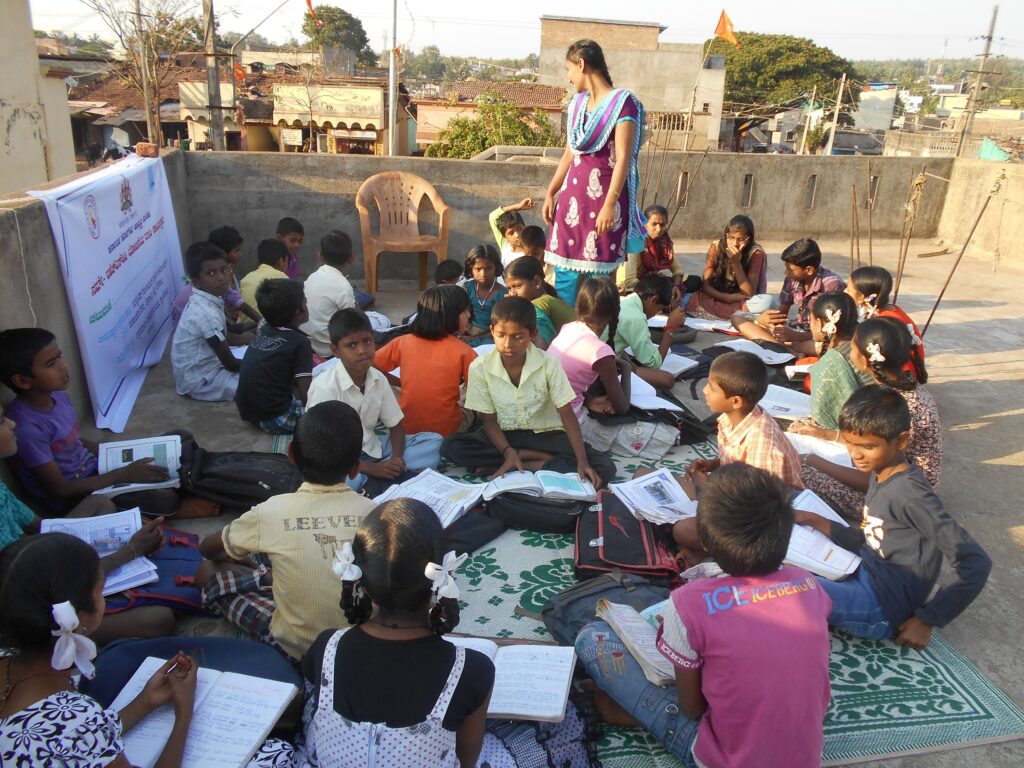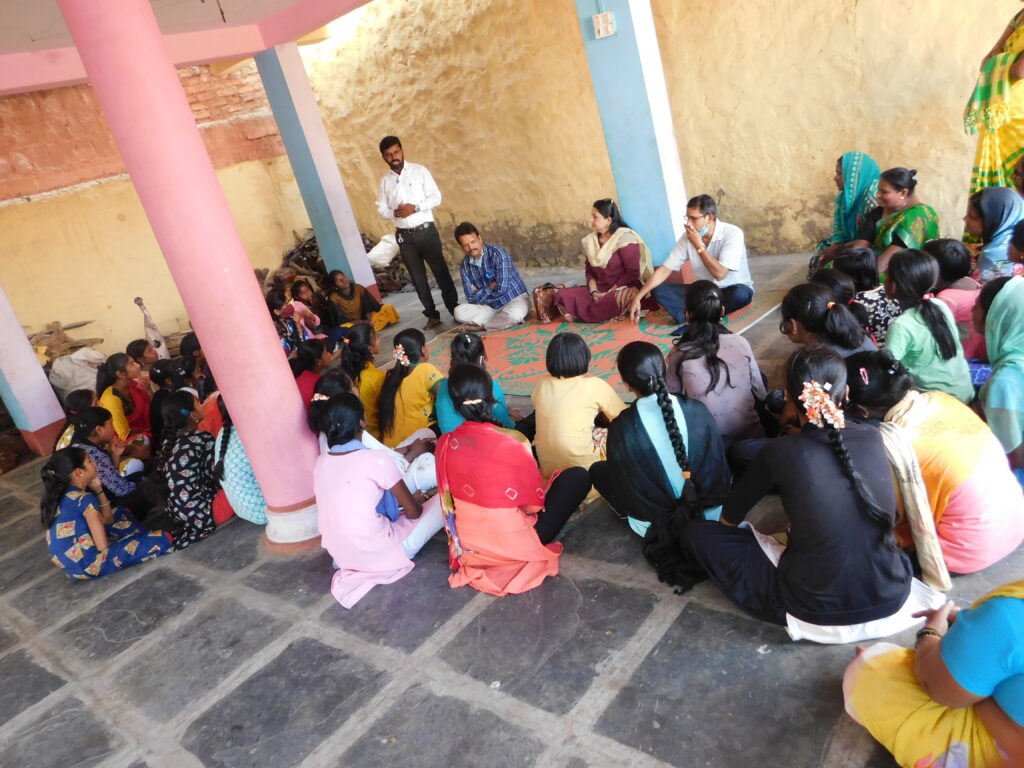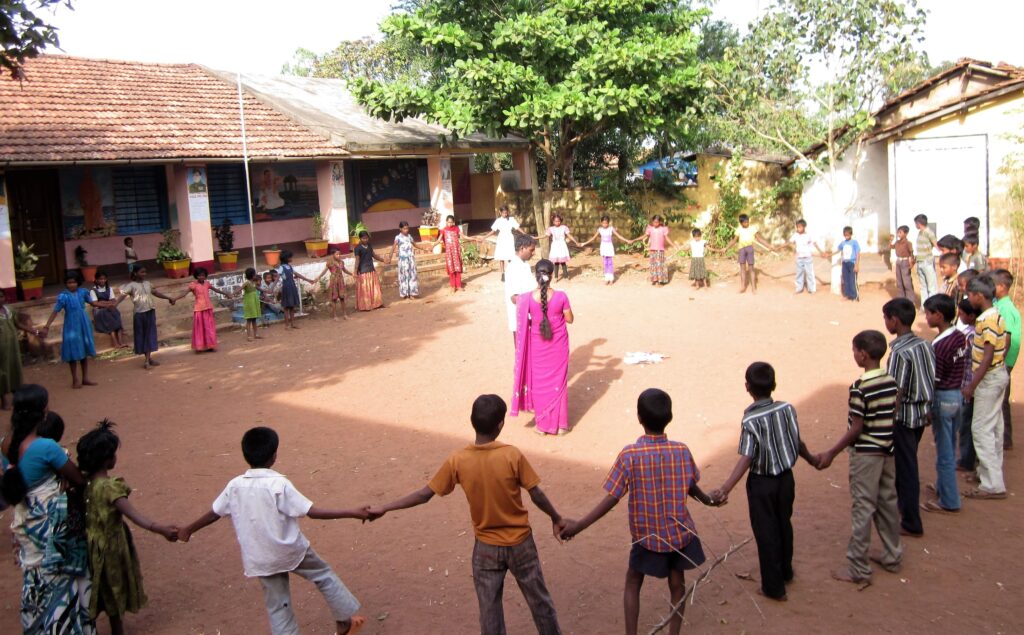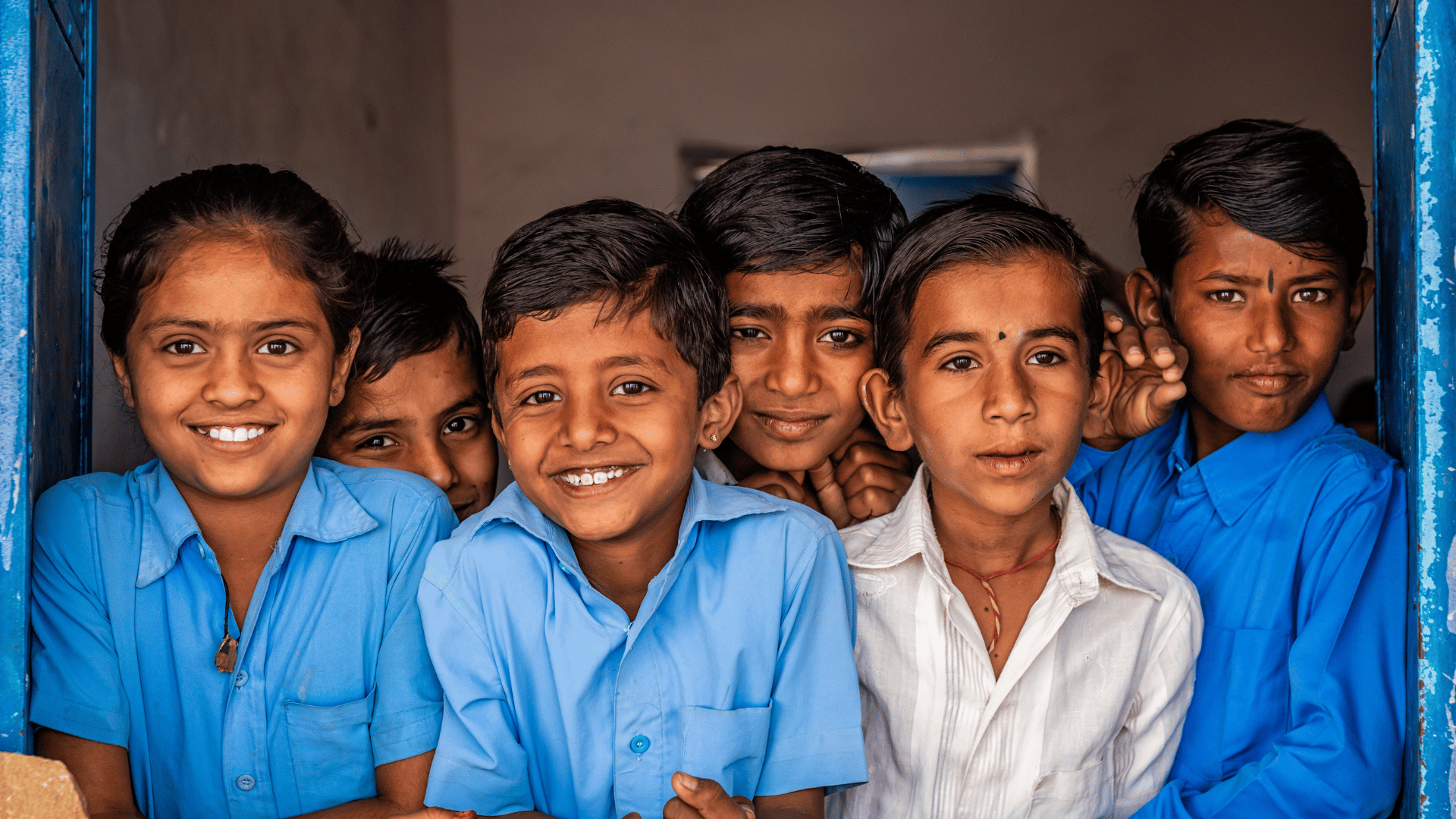CHILD EMPOWERMENT FOR GOOD
The Devadasi System
The Devadasi system is an entrenched practice where young girls, often before puberty, are dedicated to deities and later exploited as sexual partners by upper-caste men. This institutionalized oppression predominantly affects Dalit communities, who belong to the marginalized untouchable castes. The system thrives due to religious justifications and the psychological influence of feudal lords, temple authorities, and priests, framing the practice as ‘sacred’ to legitimize the exploitation.

Drivers of the Devadasi System
- Religious Customs: Deep-rooted beliefs perpetuate the system by associating dedication with religious duty.
- Caste System: Marginalized communities, especially Dalits, are disproportionately affected.
- Patriarchal Domination: Male dominance within communities reinforces the practice, stripping women of agency.
- Economic Hardship: Poverty in Dalit communities fuels the dedication of girls, often as a means of survival.
Dependence on Private Providers: Due to the inadequate public healthcare system, many are forced to seek care from private providers, leading to financial hardship.
Despite the Karnataka Devadasi (Prohibition of Dedication) Act of 1984, amended in 2010, the practice of dedicating girls as Devadasis continues. Insufficient law enforcement and entrenched socio-cultural norms contribute to the persistence of this practice in various regions of Karnataka. Additionally, the children born to Devadasis face heightened risks of sexual exploitation, further perpetuating the cycle of abuse.
The Scale of the Problem
In 2009, a Government of Karnataka survey identified approximately 46,660 Devadasi women in North Karnataka. Recent research by Karnataka State Women’s University, with support from Terre des Hommes, estimates the number has risen to over 80,000, with 20% of these women being under the age of 18. The Devadasi system remains a significant factor pushing young girls into sex work, highlighting the urgent need for effective interventions.
Challenges Faced by Devadasi Families
Many Devadasi and Dalit families rely on agriculture and sex work for their livelihoods. However, unstable agricultural income and government schemes, such as the Employment Guarantee Scheme, fall short of addressing their economic struggles. Economic pressures, lack of education, and social issues lead to high rates of out-of-school children, particularly among those aged 11 to 18, increasing their vulnerability to exploitation and dedication.

Project Overview
SEVAK, in collaboration with partners such as Amma Foundation, Chaitanya, and Children of India Foundation, is implementing a project across 60 villages in Belagavi, Bagalkote, and Vijayapura districts. This initiative aims to support 1,500 vulnerable girls by safeguarding their rights, preventing the dedication of girls as Devadasis, combating child exploitation, and raising awareness to stop child marriage.

Key Objectives
- Child Rights Protection: Advocating for child rights and preventing exploitation.
- Prevention of Dedication: Raising awareness and engaging communities to stop the dedication of girls as Devadasis.
- Combating Child Exploitation: Addressing all forms of child exploitation, with a focus on sexual exploitation.
- Awareness and Advocacy: Implementing campaigns to prevent child marriage and exploitation.
Key Interventions
The initiative focuses on enhancing protective systems by involving government and law enforcement agencies in preventing the sexual exploitation of children. A widespread awareness and advocacy campaign aims to sensitize key players to the issue.
- Community Advocacy: Members of Kishori groups are trained to advocate for enforcing laws that prevent the dedication of girls as Devadasis.
- Rehabilitation of Victims: Support is provided to rehabilitate victims of the Devadasi system, focusing on safeguarding at-risk children from sexual abuse.
Stakeholder Sensitization: Religious leaders, priests, government officials, and law enforcement personnel are sensitized to take action against child exploitation and prevent child marriage.
Government and Law Enforcement Engagement
To combat the Devadasi system, the initiative works closely with the Department of Women and Child Development, the District Child Protection Unit, the Child Welfare Committee, CHILDLINE staff, and law enforcement personnel. These stakeholders are encouraged to implement proactive measures, particularly under the Protection of Children from Sexual Offences (POCSO) Act, to prevent the dedication of girls and combat sexual exploitation.
The program employs a comprehensive approach involving prevention, provision, and promotion strategies. It focuses on creating awareness, advocating for policy changes, and implementing welfare schemes that prevent the dedication of girls as Devadasis.

